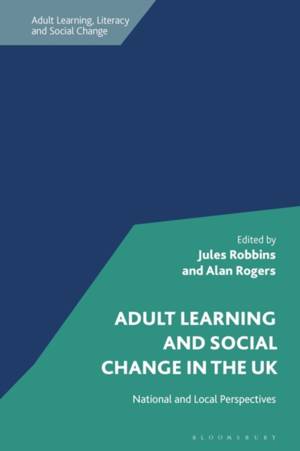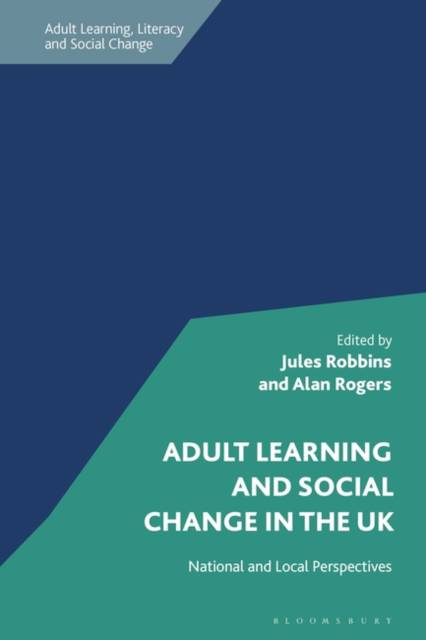
- Afhalen na 1 uur in een winkel met voorraad
- Gratis thuislevering in België vanaf € 30
- Ruim aanbod met 7 miljoen producten
- Afhalen na 1 uur in een winkel met voorraad
- Gratis thuislevering in België vanaf € 30
- Ruim aanbod met 7 miljoen producten
Zoeken
Adult Learning and Social Change in the UK
National and Local Perspectives
€ 203,95
+ 407 punten
Omschrijving
Adult education offers the potential to enhance the individual's sense of agency to direct and improve their future; this is especially important in times of significant societal unrest. It may lead to social change and even social justice. This book begins with a new consideration of historical perspectives of radical adult education in the UK and how these might inform planning for future adult education which is both relevant and emancipatory. The volume aims to capture some of the 'messiness' of adult education through analysis of a wide range of its many forms and a focus on the learners themselves, the different kinds of providers and the wider community around them. Individual chapters offer insights into an environmental community gardening scheme, provision for refugees and asylum seekers, the radical role of volunteers, the impact of discussion groups for older people and the National Community Service scheme for young adults.
The book considers the significance of the Sustainable Development Goals, each of which includes targets linked with adult training, awareness-raising or education. Considering the factors for effective adult education programmes for social change, this volume questions the extent to which it can be argued that positive social change results from adult education. Active learning, group learning and education which is practical, flexible and individualised may provide the best routes ahead. The wide-ranging case studies demonstrate the importance of recognising and valuing adult learners' prior knowledge, and the need for alternative approaches to assessment.
The book considers the significance of the Sustainable Development Goals, each of which includes targets linked with adult training, awareness-raising or education. Considering the factors for effective adult education programmes for social change, this volume questions the extent to which it can be argued that positive social change results from adult education. Active learning, group learning and education which is practical, flexible and individualised may provide the best routes ahead. The wide-ranging case studies demonstrate the importance of recognising and valuing adult learners' prior knowledge, and the need for alternative approaches to assessment.
Specificaties
Betrokkenen
- Uitgeverij:
Inhoud
- Aantal bladzijden:
- 240
- Taal:
- Engels
- Reeks:
Eigenschappen
- Productcode (EAN):
- 9781350262126
- Verschijningsdatum:
- 9/03/2023
- Uitvoering:
- Hardcover
- Formaat:
- Genaaid
- Afmetingen:
- 156 mm x 234 mm
- Gewicht:
- 512 g

Alleen bij Standaard Boekhandel
+ 407 punten op je klantenkaart van Standaard Boekhandel
Beoordelingen
We publiceren alleen reviews die voldoen aan de voorwaarden voor reviews. Bekijk onze voorwaarden voor reviews.







